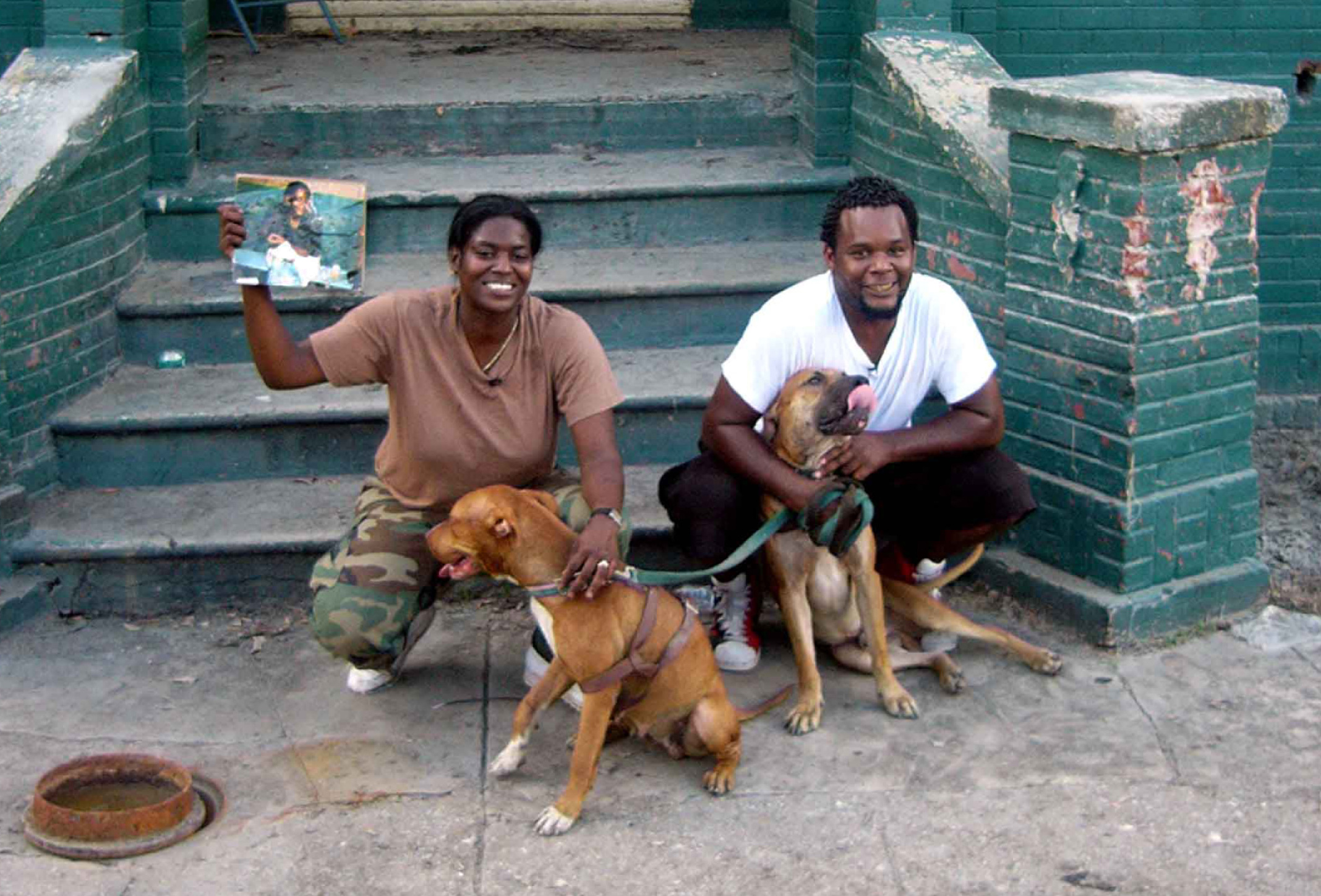|
Reviews of Recent Independent, Foreign, & Documentary Films in Theaters and DVD/Home Video

TROUBLE THE WATER
While reality TV and the Internet has seemed to turn everyone with a camera into an eyewitness of events great and too small, there has been a middle-class bias to this whole-world-is-watching perspective, so Kimberly Rivers Roberts’ chance decision to buy a camcorder in August 2005 for $20 on her street in the Lower Ninth Ward takes on an added significance. It is not just because she happens to be recording the equivalent of Pompeii before the volcano—the next week, her neighborhood will be destroyed and its residents permanently shattered. As she casually strolls along, greeting friends and relatives while learning to use her camera, we get to see not just a poor neighborhood ignored by moviemakers and governments alike, but a summer’s day in a lively community with distinctive architecture and interconnected neighbors and their ongoing troubles, including her drunken uncle passing out on his stoop and young drug dealers hanging around. Even as the warnings mount about the coming storm, we see how these same stubborn connections to the old, very young, and those without mobility or resources trap the boisterous Kimberly and her extended family in the city when the hurricane hits and the waters rise around them. With only two hours of battery power left, she vividly captures the inside story of desperate families who climbed to the roofs and faced physical danger and awful hardships. Their apocalyptic odyssey is as much through racism and paranoia from rescuers, who cannot see beyond media generated stereotypes and misinformation, as it is the rising water. You have to keep reminding yourself these are American citizens in a major U.S. city being treated this way by the U.S. military. Just how close Kimberly touches raw nerves is indicated by the number of times she’s told to stop filming. Through it all, she and her husband, Scott, creatively commandeer vehicles to escape and seek shelter from the storm outside the city. Two weeks later, she adds first-time documentary directors Tia Lessin and Carl Deal, producers of Fahrenheit 9/11, to her entourage. The filmmakers were scrambling to make a film about National Guard troops returning from Baghdad to find even worse devastation in their hometowns (some of that project blocked by the military shows up here). Ever the self-promoter (she raps as Black Kold Madina), Kimberly offered them her video, and the directors turned her into the star of their new film. Lessin’s and Deal’s camera shows Kimberly’s frustrating dealings over weeks and months with government aid bureaucracies, as well as difficulties staying with relatives from Louisiana to Tennessee. When Kimberly and Scott give up on a fresh start elsewhere and return home, one by one they find lost family members or hear about what happened to them. Each has a searing story to tell that has not been directly heard so personally before, like Kimberly’s brother, still in shock about how a minor brush with the law landed him in jails that flooded, and elderly relatives who suffered in public hospitals. It is heartbreaking to see individuals who had been treading water in life with alcoholism and other ills get swept away in social currents aggravated by posttraumatic stress. To see how the couple’s amazing optimism is holding up, the directors revisit through 2006 and again in early 2007. (I visited the Lower Ninth a few months after them and was stunned to see how wrecked it still was then.) Despite every road block from government agencies, Kimberly and Scott persevere, though they have even less financial resources than the self-help activists Jonathan Demme filmed in Right to Return: New Home Movies from the Lower 9th Ward. Ironically recalling Scarlett O’Hara’s gumption, Kimberly turns her anger into determination to keep going, focusing on her potential rap career. She inspires all those around her, including the filmmakers and anyone who sees this film. Spike Lee’s
epic Emmy-winning
When the Levees
Broke: A Requiem in Four Acts provides much more of the
factual context that is cursorily edited in here in a more polemical
fashion, though a lot of news and other footage illustrate the specifics
of Kimberly and Scott’s experiences. But what stands out as unique and
invaluable is the power of the eyewitnesses and the indomitability of
the human spirit. The whole world is watching indeed.
Nora Lee Mandel
|

